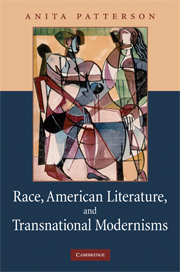Book contents
- Frontmatter
- Contents
- Acknowledgments
- Introduction. Towards a comparative American poetics
- Chapter 1 Transnational topographies in Poe, Eliot and St.-John Perse
- Chapter 2 Hybridity and the New World: Laforgue, Eliot and the Whitmanian poetics of the frontier
- Chapter 3 From Harlem to Haiti: Langston Hughes, Jacques Roumain and the avant-gardes
- Chapter 4 Signifying modernism in Wilson Harris's Eternity to Season
- Chapter 5 Beyond apprenticeship: Derek Walcott's passage to the Americas
- Epilogue
- Notes
- Bibliography
- Index
- References
Bibliography
Published online by Cambridge University Press: 22 September 2009
- Frontmatter
- Contents
- Acknowledgments
- Introduction. Towards a comparative American poetics
- Chapter 1 Transnational topographies in Poe, Eliot and St.-John Perse
- Chapter 2 Hybridity and the New World: Laforgue, Eliot and the Whitmanian poetics of the frontier
- Chapter 3 From Harlem to Haiti: Langston Hughes, Jacques Roumain and the avant-gardes
- Chapter 4 Signifying modernism in Wilson Harris's Eternity to Season
- Chapter 5 Beyond apprenticeship: Derek Walcott's passage to the Americas
- Epilogue
- Notes
- Bibliography
- Index
- References
- Type
- Chapter
- Information
- Race, American Literature and Transnational Modernisms , pp. 218 - 234Publisher: Cambridge University PressPrint publication year: 2008

